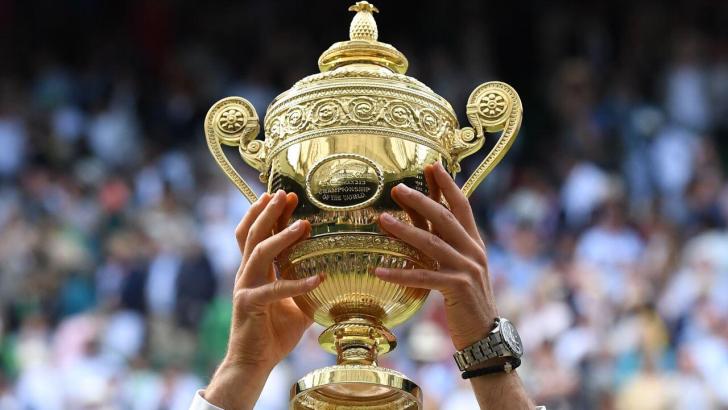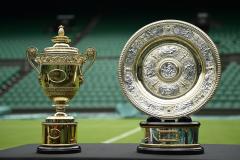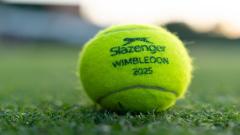Wimbledon Tips: Hurkacz to provide technicolour memory

"Only Hubert Hurkacz is likely to trouble Djokovic for a place in the final, unless Djokovic finds a way to trouble himself, of course..."
2 pts Back Hubert Hurkacz at 18.017/1
Young fans could be forgiven for thinking that a divine right operates in tennis, writes Jack Houghton, but Hubert Hurkacz might dispel that myth...
Thatcher a reality of life
Margaret Thatcher's departure as Prime Minister in 1990 is a high-resolution, technicolour memory from a time in my life where other memories are pixilated, grey and dispersed across an uncertain chronology.
It was a profound shock, undermining a wrongly-assumed certainty in life. Born in 1977, I had never known another Prime Minister, and the generalising logic of childhood had led me to believe that another Prime Minister, therefore, was not possible.
The divine right in tennis
There are tennis fans in their mid-20s who could be forgiven for thinking that a similar divine right operates in grand slam tennis. Take Wimbledon. Since 2002, only four players have lifted the trophy - Roger Federer, Rafa Nadal (10.09/1), Novak Djokovic (1.9620/21) and Andy Murray (85.084/1).
And their powers of survival outshine even those of Thatcher. The Poll Tax crisis did for her, but it seems that no calamity or predicament is enough to finally tilt the axis of the men's game and see a new dominance emerge.
Djokovic navigates constant torrents of scandal, including temporary incarceration, and yet still finds himself the rightful, overwhelming favourite to win at Wimbledon.
Nadal has won both grand slams this year, despite increasingly appearing less human being and more walking medical experiment (news emerged after his French Open win that a degenerative foot condition was managed throughout the tournament with anesthetisation).

Murray is bizarrely resurgent, despite a late run to claim superiority over Nadal in the realm of medical intervention, with multiple hip and back surgeries apparently not enough to end his career at the top of the game.
Only Federer, it seems, has the good grace to recognise that reconstructive knee surgery is good enough reason to sit out Wimbledon. For this year, at least. He'll likely win again in 2031.
Djokovic draw a gift from god
Amazingly, veteran fans who want to educate the 20-somethings in the realities of tennis - No, it really is possible for another player to win something big - might have to wait for that moment of education, because the draw could hardly have been kinder to Djokovic.
Taking the best 15 players in the world according to my Elo ratings, only five of them appear in Djokovic's half of the tournament. Of those, Carlos Alcaraz (18.0017/1), Jannik Sinner (240.0239/1), Casper Ruud (250.0249/1) and Cameron Norrie (300.00299/1) have woeful records on grass to date, and whilst Alcaraz shows immense promise - and may one day become an all-surface dominant force - it's a stretch to think he will do that yet.
Only Hubert Hurkacz (18.017/1) is likely to trouble Djokovic for a place in the final, unless Djokovic finds a way to trouble himself, of course.
A torrid bottom half
The bottom half of the draw is much more competitive. There's medical miracle Nadal, of course, and a valid case can also be made for several, including Matteo Berrettini (7.4013/2), Roberto Bautista Agut (260.0259/1), Nick Kyrgios (38.037/1), Stefanos Tsitsipas (34.033/1), Felix Auger-Aliassime (26.025/1), Dan Evans (500.0499/1), and Marin Cilic (48.047/1).
The difficulty is in picking which one of these will survive to be able to mount a challenge to the winner of the top-half of the draw, making it hard to see any of them as a value bet.
Hurkacz the tentative selection
For the record, Djokovic is a little short in my book. I have him as a 2.111/10 shot. That price discrepancy is not enough to get excited about, though, and whilst I won't be backing him, he remains the most likely winner.
The tentative recommendation is Hubert Hurkacz. His odds are generous - he should be a 13.012/1 shot - and his win in Halle demonstrates that his Wimbledon run last year was no fluke.
Recommended bets
GET £50 IN FREE BETS MULTIPLES WHEN YOU SPEND £10 ON THE BETFAIR SPORTSBOOK
New customers only. Bet £10 on the Betfair Sportsbook at odds of min EVS (2.0) and receive £50 in FREE Bet Builders, Accumulators or Multiples to use on any sport. T&Cs apply.
Prices quoted in copy are correct at time of publication but liable to change.

